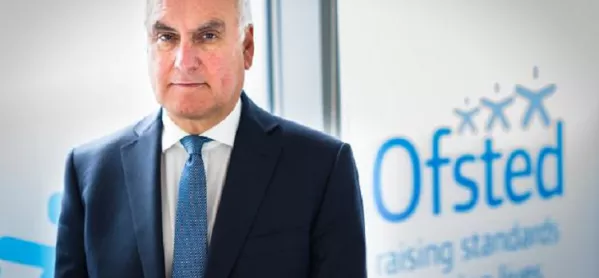There are two groups of people who get very excited about Ofsted results: estate agents and headteachers. But for very different reasons. Parents, however, are less fussed. Or so it would seem.
A poll by TES and Mumsnet, a parenting website, saw respondents put Ofsted way down the list of important factors when choosing a school for their child (see pages 24-31 of this week’s magazine).
For primary school, Ofsted was joint fourth in the list, with just 4 per cent of parents putting it as their top priority. One parent even said: “I only checked the Ofsted result after I had already decided that [the school] was perfect.”
For secondary, it was even worse. Just 2 per cent of parents thought it was the main factor to consider, placing it joint sixth in the overall list of priorities.
However, parents did rate the opinions of other parents or people locally who knew something about the school, with 76 per cent (primary) and 73 per cent (secondary) citing this as important. And how would a school gain a reputation locally? Yes, you’ve guessed it, probably from the Ofsted report.
The inspectorate is there of course to protect children and assure parents, not to torment teachers, as it is often perceived. Its stated goal is “to achieve excellence in education and skills for learners of all ages”, as well as “in the care of children and young people”.
But as he nears the end of his five-year tenure as chief inspector of Ofsted, Sir Michael Wilshaw doesn’t think we are there yet on the excellence front. It’s certainly not a case of educational excellence everywhere. He told the Liberating Leaders conference this week that, unfortunately, England still has “a pretty ordinary education system”.
In his time, he has revamped the inspectorate, sacking 40 per cent of his inspectors, ended outsourcing, brought in far more school leaders as inspectors and changed the satisfactory rating to requires improvement. But he has never lost sight of its main purpose.
“As important as the reorganisation of Ofsted was, being chief inspector was not and has never been a purely bureaucratic position,” he said. “We are charged with holding schools to account and improving the lives of our youngest citizens, especially the poorest. And to do that, to get things done, it is sometimes necessary to challenge, to take a risk.”
Being challenging, taking risks, being fiercely independent, reminding ministers that he answers to Parliament, not the Department for Education, have characterised his reign.
Looming on the horizon is the announcement of his successor, one for whom the job description might as well have been “Nothing Like Sir Michael Wilshaw”. And we are likely to see a big change. The role of the inspectorate will be downgraded as the role of the national schools commissioner gains ascendancy. Sir David Carter and his merry band of regional schools commissioners (they don’t hang around for long, do they?) will take centre stage.
As we near the end of an era, it’s worth bearing in mind Sir Michael’s words this week. Education, he said, needs mavericks, “people who are flamboyant, colourful and, yes, downright strange.
“In other words, we need extraordinary people. We need people to be members of the awkward squad.”
He’s certainly been awkward, unpredictable and often been completely infuriating. But, somehow, I suspect that it won’t be only the estate agents who will miss him.
@AnnMroz
This is an article from the 27 May edition of TES. This week’s TES magazine is available in all good newsagents. To download the digital edition, Android users can click here and iOS users can click here
Want to keep up with the latest education news and opinion? Follow TES on Twitter and like TES on Facebook




